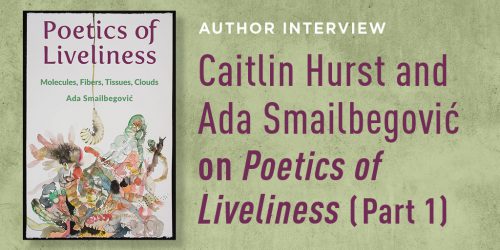Gary Francione Interviewed in The Believer
 “The best justification that we have for killing billions of animals every year is that they taste good. That simply cannot suffice as a moral justification.”—Gary Francione
“The best justification that we have for killing billions of animals every year is that they taste good. That simply cannot suffice as a moral justification.”—Gary Francione
This month’s issue of The Believer includes an excellent interview with Gary Francione, most recently the co-author of The Animal Rights Debate: Abolition or Regulation? and the author of Animals as Persons: Essays on the Abolition of Animal Exploitation.
Deb Olin Unferth, who was the interviewer, writes that Francione has developed what is “universally acknowledged as the most original and consistent theory of animal rights produced to date.” In the interview, Francione, whose absolutist position on animal rights has often put him at odds with the mainstream animal rights movement, explains his views on vegetarianism (he’s against it and in favor of veganism), humane farming (against it), and keeping pets (he’s against the breeding of animals for domestication.)
Here are some excerpts from the interview:
On Michael Vick:
We all condemn Michael Vick for sitting around a pit and watching dogs fight because he derives pleasure from doing so. The rest of us sit around the barbecue pit and roast the bodies of animals who have been tortured as badly as—if not worse than—Vick’s fighting dogs, because we enjoy the taste. That’s moral schizophrenia. We treat some animals as members of our family, and we stick forks into other animals who are no different from our nonhuman family members. That’s moral schizophrenia.
On humane farming::
I think that people who advocate such practices actually do more harm than good by perpetuating the fantasy that we can somehow tidy up the concentration camps and make the institutionalized exploitation of sentient beings morally acceptable…. A concentration camp with comfortable beds is better than one without. But this approach neglects a fundamental question about the moral legitimacy of the underlying activity of treating animals as human resources. For those who support these supposed reforms, the issue is how we use animals; for me, the issue is that we use animals.
On PETA’s advertising campaigns:
Second, the [animal welfare] groups, and particularly PETA, were becoming obsessed with the media and shaping the movement to fit the media. The notion of using sex and sexism to “sell” the animal issue started emerging. This, of course, made and makes no sense. As long as we commodify women through sexism, we’ll continue to commodify nonhumans. The real problem is the commodification of sentient beings. You cannot morally justify perpetuating the commodification of some for the benefit of others.
On the difference between an animal abolitionist and an animal welfarist:
An animal welfarist maintains that we should regulate animal use to make it more “humane.” Some welfarists believe that welfare reform will eventually lead incrementally to the abolition of animal use or at least to significantly reduced use. I call those welfarists “new welfarists” because they claim to see welfare reform as a means to an end (abolition, reduced use), rather than as an end in itself.
An abolitionist is, as I have developed that notion, one who (1) maintains that we cannot justify animal use, however “humane” it may be; (2) rejects welfare campaigns that seek more “humane” exploitation, or single-issue campaigns that seek to portray one form of animal exploitation as morally worse than other forms of animal exploitation (e.g., a campaign that seeks to distinguish fur from wool or leather); and (3) regards veganism, or the complete rejection of the consumption or use of any animal products, as a moral baseline. An abolitionist regards creative, nonviolent vegan education as the primary form of activism, because she understands that the paradigm will not shift until we address demand and educate people to stop thinking of animals as things we eat, wear, or use as our resources.




